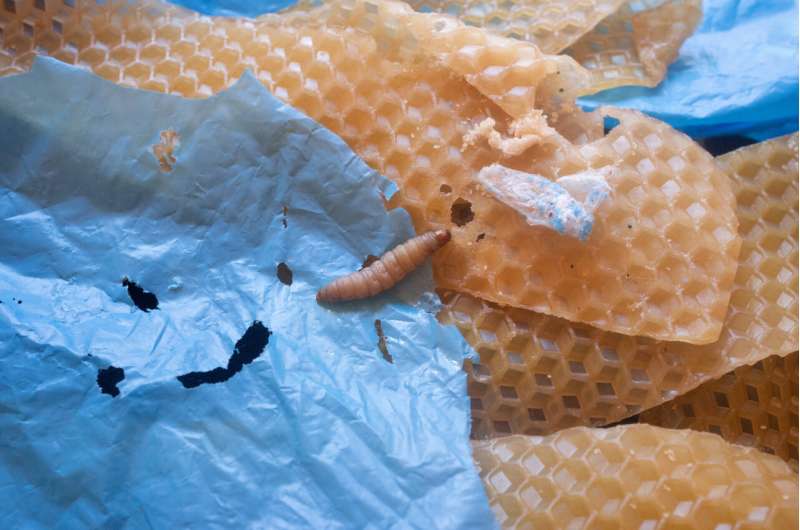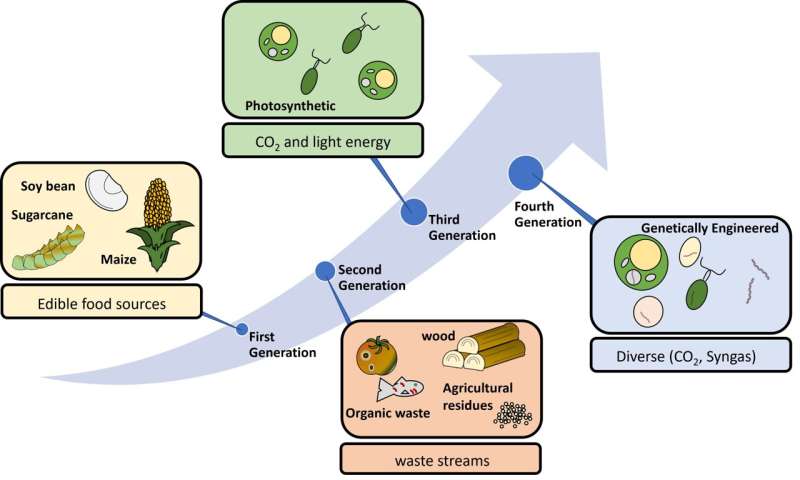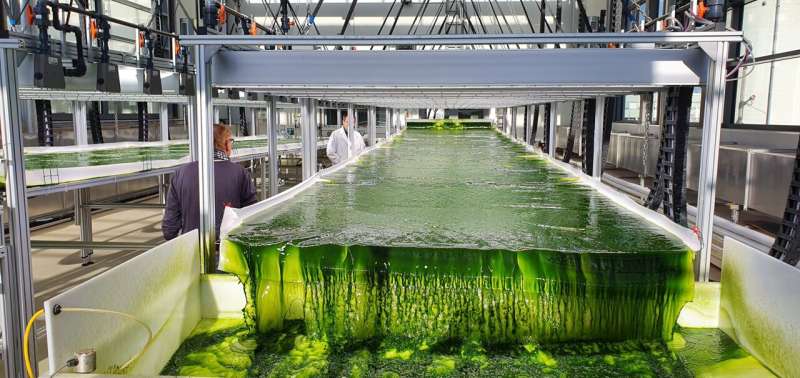This article has been reviewed according to Science X's editorial process and policies. Editors have highlighted the following attributes while ensuring the content's credibility:
fact-checked
peer-reviewed publication
trusted source
proofread
Harnessing nature to promote planetary sustainability

As Earth's population grows, the demands of modern lifestyles place mounting strain on the global environment. Proposed solutions to preserve and promote planetary sustainability can sometimes prove more harmful than helpful. However, technologies that harness natural processes could be more successful.
Such technologies are the focus of the latest issue of the open access journal PLOS Biology, which features a special collection publishing March 31 of papers highlighting biology-based solutions that could be applied to reduce carbon dioxide emissions, eliminate non-degradable plastics, produce food or energy more sustainably, and more.
In one of the papers, Federica Bertocchini and Clemente Arias of the Spanish Natural Research Council outline recent research supporting the possibility of using insects to degrade plastic waste, specifically polyethylene. This insect enzyme could serve as a more sustainable alternative to current methods of incineration and mechanical recycling.
Bertocchini adds, "Plastic biodegradation: the technology is not quite there yet, but insect enzymes may represent the tipping point in the field."
In another plastics-focused article, Sandra Pascoe Ortiz of Universidad del Valle de Atemajac, Mexico, examines ongoing initiatives to develop fully recyclable bioplastics—a broad category of materials that are either made from renewable sources and may or may not be biodegradable, or are made from fossil sources but are biodegradable. Pascoe Ortiz reveals that these initiatives, while promising, are still far from completely solving the problem of plastic pollution.

Pascoe Ortiz adds, "Plastic pollution is a serious problem that needs to be addressed, there are some materials that can help to solve it, but the most important thing is to be aware of the use and disposal we give to different products regardless of the material."
Turning to the challenge of carbon dioxide pollution, Peter Ralph and Mathieu Pernice of the University of Technology Sydney, Australia describe the potential of using photosynthetic algae to capture carbon dioxide produced as a byproduct of a wide variety of industrial applications, keeping the greenhouse gas out of the atmosphere. The researchers have already put this approach into practice by collaborating with a brewery.
Ralph adds, "Algae-based carbon capture and manufacture (CCM) has great potential to help mitigate climate change by capturing atmospheric carbon and using it to create long-lasting bioproducts to store carbon. Additionally, CCM offers numerous industrial benefits, such as reducing the cost of chemical processes and enabling the use of advanced manufacturing, potentially transforming many industries into climate-positive biomanufacturing."
Thomas Brück's research group (Werner Siemens Chair of Synthetic Biotechnology) at the Technical University of Munich, Germany summarizes the current state of available biofuel technologies. Advanced biofuels are sustainable "drop-in" alternatives to fossil equivalents and complement other renewable energy resources, thereby eliminating CO2 emissions. The researchers outline a definitive set of policy recommendations for rapid global deployment of these technologies.

Brück adds, "Advanced biofuels do not compete with agriculture and can be realized via greenhouse gas neutral or even negative processes today. These can contribute to energy security and sustainable mobility but require a stable legislative framework together with financial incentives for broad industrial roll out and applicability."
Along with the other articles in the collection, these perspectives could help inform and guide policies and further initiatives to keep Earth green.
More information: Federica Bertocchini et al, Why have we not yet solved the challenge of plastic degradation by biological means?, PLOS Biology (2023). DOI: 10.1371/journal.pbio.3001979
Sandra Pascoe Ortiz, Are bioplastics the solution to the plastic pollution problem?, PLOS Biology (2023). DOI: 10.1371/journal.pbio.3002045
Peter J. Ralph et al, Save the planet with green industries using algae, PLOS Biology (2023). DOI: 10.1371/journal.pbio.3002061
Philipp Cavelius et al, The potential of biofuels from first to fourth generation, PLOS Biology (2023). DOI: 10.1371/journal.pbio.3002063
Journal information: PLoS Biology
Provided by Public Library of Science

















